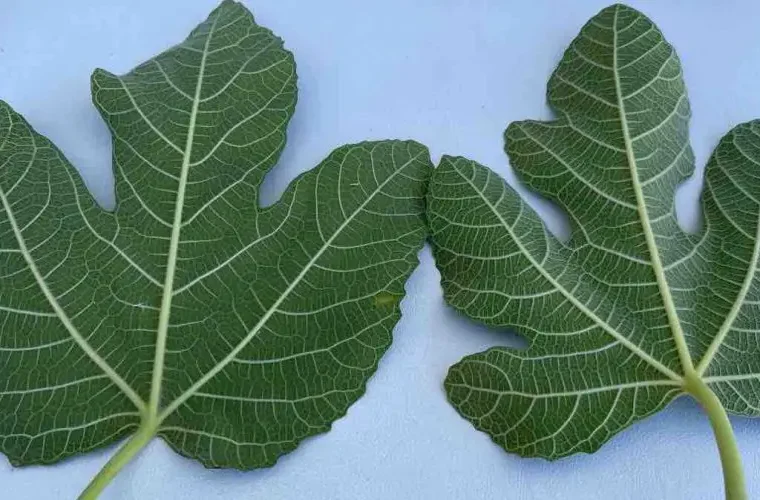The Health Benefits of Fig Leaves: A Powerful Natural Remedy
While the sweet fruit of the fig tree is widely celebrated, its leaves are often overlooked, despite their remarkable health benefits. Rich in essential nutrients and bioactive compounds, fig leaves can significantly enhance your well-being. Here’s a look at the key health advantages of fig leaves and how to make fig leaf tea—a simple, health-boosting drink.
1. Blood Sugar Control
Fig leaves help regulate blood sugar levels by improving insulin sensitivity and reducing glucose levels. This makes them especially beneficial for people with type 2 diabetes or those at risk. Consuming fig leaf tea or extracts can support diabetes management.
2. Cardiovascular Health
Fig leaves can help lower blood triglycerides and improve cholesterol levels by reducing LDL (bad cholesterol) and increasing HDL (good cholesterol). This promotes heart health and lowers the risk of cardiovascular diseases like heart attacks and strokes.
3. Weight Management
High in fiber, fig leaves promote satiety, helping control hunger and reduce frequent snacking. They also aid in regulating fat metabolism, which can be beneficial for those looking to manage their weight.
4. Digestive Health
The fiber in fig leaves supports regular bowel movements and alleviates constipation. Additionally, their anti-inflammatory properties can help relieve gastrointestinal discomfort, making them useful for conditions like irritable bowel syndrome (IBS).
5. Skin Health
Packed with antioxidants, including flavonoids and polyphenols, fig leaves protect the skin from oxidative stress, preventing signs of aging like wrinkles. They are also used in traditional medicine to treat skin issues such as eczema, psoriasis, and acne.
6. Bone Health
Fig leaves, rich in calcium and magnesium, are vital for strong bones. Regular consumption can help prevent osteoporosis, especially in older adults, while their anti-inflammatory properties also support bone health.
7. Respiratory Health
Fig leaves are traditionally used to treat bronchitis and asthma, acting as natural expectorants. They help clear mucus from the lungs and ease coughing, making fig leaf tea a soothing remedy during cold and flu season.
8. Cancer Risk Reduction
The antioxidants in fig leaves may help protect cells from DNA damage that can lead to cancer. Some studies suggest that fig leaf compounds could also inhibit the growth of certain cancer cells.
9. Liver Health
Fig leaves support liver function by aiding detoxification and reducing liver enzymes associated with inflammation and damage. They are particularly beneficial for individuals with liver issues or those exposed to toxins.
10. Ulcer and Digestive Disorder Relief
Fig leaves have healing properties that soothe the stomach lining, promoting the healing of ulcers and alleviating symptoms like pain and indigestion.
How to Make Fig Leaf Tea
Making fig leaf tea is simple and an effective way to enjoy the health benefits of fig leaves. Here’s how to prepare it:
Ingredients:
- 2-3 fresh or dried fig leaves
- 2 cups of water
- Honey or lemon (optional)
Instructions:
- Wash the fig leaves thoroughly to remove any dirt.
- Boil 2 cups of water, then add the fig leaves and reduce heat to simmer.
- Let the leaves steep for 10-15 minutes.
- Strain the tea into a cup and add honey or lemon to taste, if desired.
- Enjoy warm, ideally daily, to experience the health benefits.
Conclusion
Fig leaves are a powerful, natural remedy that can improve various aspects of your health, from managing blood sugar and supporting heart health to enhancing skin and digestive wellness. Incorporating fig leaves into your daily routine, especially in the form of tea, is an easy way to boost your overall health. Always consult with a healthcare professional before starting any new health regimen, particularly if you have existing health conditions.
Share this guide with friends and family to help them discover the benefits of fig leaves!




